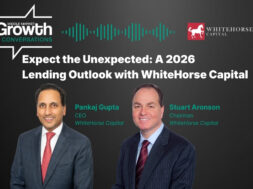Navigating the Shifting Landscape of Private Equity Business Development
Sean McKinnon of Novacap shares what it takes for BD professionals to win in 2024

The past year has been a testament to the resilience and adaptability required in the face of economic headwinds in the ever-evolving world of private equity.
As we reflect on the landscape of business development and market trends in 2023, it’s clear that the industry has faced its share of challenges and transformations.
The State of the Private Equity Market in 2023
It should come as no surprise that 2023 was a challenging year for the private equity industry. From a high of $2.2 trillion in 2021, deal activity dropped 35% to $1.4 trillion in 2022, and then plummeted another 40% to $850 billion in 2023— marking the lowest level since 2013.1 This decline can be attributed to a combination of factors including rising interest rates, recession fears and the performance of individual companies, leading to fewer businesses coming to market.
Based on market feedback, initial buyer interest in the few companies that did go to market was notable, reflecting the scarcity of deals. However, as processes progressed, three key factors were highlighted by many of the most active mid-market investment banks as leading to reduced interest: doubts about the sustainability of revenue and EBITDA growth, concerns over future performance amid economic headwinds, and the tightening of debt financing due to higher interest rates. This divergence in valuation expectations caused many buyers to withdraw, while those remaining adjusted their valuations downward, reflecting these risks. Data from Sutton Place Strategies showed that only 30%-40% of deals launched in the first half of 2023 had closed by year-end.2
Despite this, the deals that closed often did so at valuations that defied the broader trend of decline, a testament to the complexity of current market dynamics.
Winning Strategies in Business Development
Against the backdrop of 2023, what does it take to win in ’24? The role of technology in reshaping the private equity BD landscape cannot be overstated. Data analytics and industry tools such as data providers and CRMs have become indispensable in identifying potential investment
opportunities and tracking industry trends. Artificial intelligence and machine learning have further revolutionized business development efforts. AI tools can now enhance lead generation and prospecting by allowing for the analysis of vast datasets to uncover patterns and trends not immediately obvious to human analysts. These tools are helping business development teams scale their research efforts efficiently and be more effective.
Yet, despite this technological evolution, the fundamental importance of relationship-building remains unchanged. In fact, it can be argued that relationships are more important than ever. With all the technology employed to identify the highest quality targets, being able to differentiate a firm’s value proposition is even more critical. The depth and strength of relationships continue to be the decisive factor in securing investment opportunities and ultimately achieving successful financial outcomes for private equity firms. Whether it’s securing an invitation to a narrowly targeted process (the “red-carpet” treatment) or getting access to the last call on a competitive deal, the quality of relationships with investment bankers and deal intermediaries holds the key to unlocking value and winning in hostile environments.
The depth and strength of relationships continue to be the decisive factor in securing investment opportunities and ultimately achieving successful financial outcomes for private equity firms.
When dealing directly with entrepreneurs or management teams, a strong relationship can sometimes trump a higher valuation, since choosing the right partner for a transaction is vitally important. When everything else is equal in a potential deal, it’s the depth of relationship that ends up carrying the day. Relationship-building remains a cornerstone of the private equity industry and will continue to be the game changer in differentiating from the competition. Technology can be an immense help, but it’s the human element that still wins in the end.
In conclusion, the private equity sector in 2023 has been marked by significant challenges but also by the emergence of innovative strategies and the reaffirmation of time-tested principles. As we move forward, the ability to adapt, leverage technology and maintain strong relationships will continue to define the winners in the private equity space.
At Novacap, we firmly believe in the transformative power of technology and data analytics, coupled with the irreplaceable value of human relationships. These elements are essential in navigating the complexities of today’s market. As we look toward the future, our commitment is to continue leveraging these tools and insights, ensuring we remain agile and effective in a landscape characterized by constant change.
1 According to a December 31 Wall Street Journal article titled “‘This Can’t Go On for Much Longer.’ Private Equity’s Deal Lament” and data from Dealogic.
2 The Science Of Deal Sourcing 101 – 9th Edition, Sutton Place Strategies
Sean McKinnon is head of business development for Canadian private equity firm Novacap. McKinnon is very active in the Canadian private equity and M&A community and currently serves as vice chair of the board for ACG’s Toronto chapter. He was featured in Middle Market Growth’s Private Equity Business Development Pros to Watch in 2022.

Middle Market Growth is produced by the Association for Corporate Growth. To learn more about the organization and how to become a member, visit www.acg.org.


